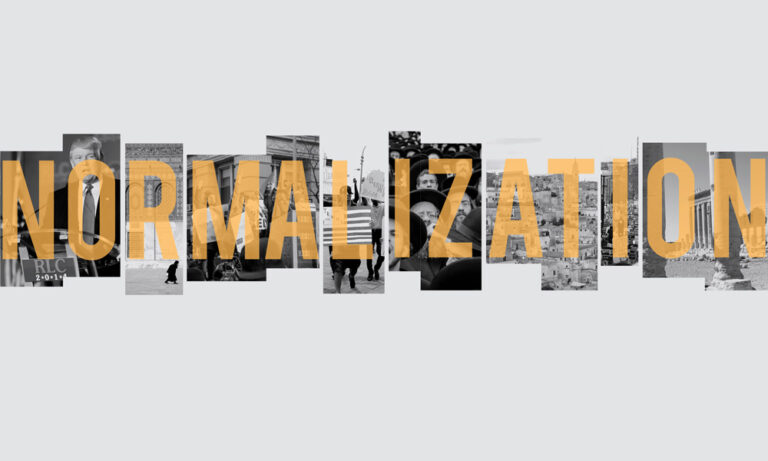The Evolution of Normalization: From Political Movements to Everyday Language
“Keep reminding yourself: This is not normal,” warned comedian John Oliver on Last Week Tonight. It was less than a week after Election Day, and the country was just beginning to process Donald Trump’s unexpected victory. Oliver put it bluntly: “A Klan-backed misogynist internet troll is going to be delivering the next State of the Union address. And that is not normal.” In those early days, despite the unusual circumstances, writer and photographer Teju Cole noted in The New York Times Magazine that there were already signs of normalization in progress.
The words “normal,” “normalization,” and “normalize” quickly became part of everyday American language following the 2016 election. However, these seemingly simple words have complex backgrounds. The word “normal” originated from the Latin norma, meaning a “rule” or “pattern,” and typically refers to conforming to a common standard. The derivatives “normalize” and “normalization” also have historical roots, with “normalize” first appearing in the mid-1800s in a medical context. It later entered the political lexicon after World War I and became associated with the goal of restoring normalcy in various contexts.
In recent times, the definition of “normalize” has evolved to mean “rendering normal that which was previously deemed beyond acceptable bounds.” This shift in meaning has been fueled by political outrage, particularly among Trump’s opponents on the left. The term has also been influenced by the anti-normalization movement in the Middle East, where it has been used in the context of Palestinian-Israeli relations. The movement emerged as a response to perceived injustices and as a way to resist what was seen as the normalization of oppressive behaviors.
The anti-normalization movement gained international traction through initiatives like the Boycott, Divestment and Sanctions (BDS) movement, which defined normalization as a “colonization of the mind” that perpetuates oppressive power dynamics. Supporters of BDS argue that true dialogue and collaboration with Israel can only occur within a framework that acknowledges and addresses the rights of Palestinians. This stance has sparked debates about the implications of anti-normalization campaigns and their impact on mutual understanding and dialogue.
While some view anti-normalization as a necessary political tool for raising awareness and challenging societal norms, others caution against its potential to deepen divides and hinder productive discourse. Regardless of differing perspectives, the concept of normalization continues to be a source of debate and reflection in various political and social contexts.

